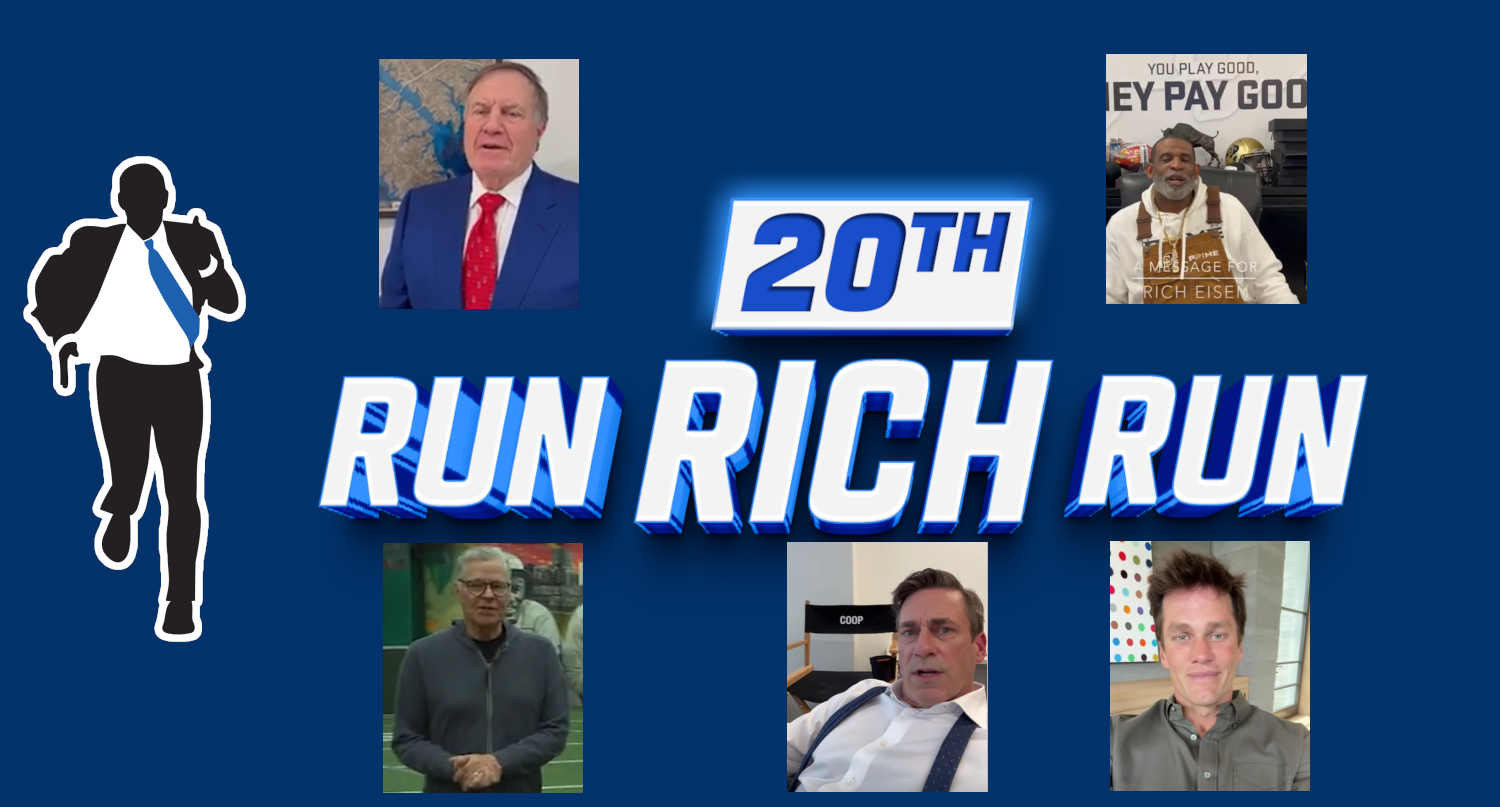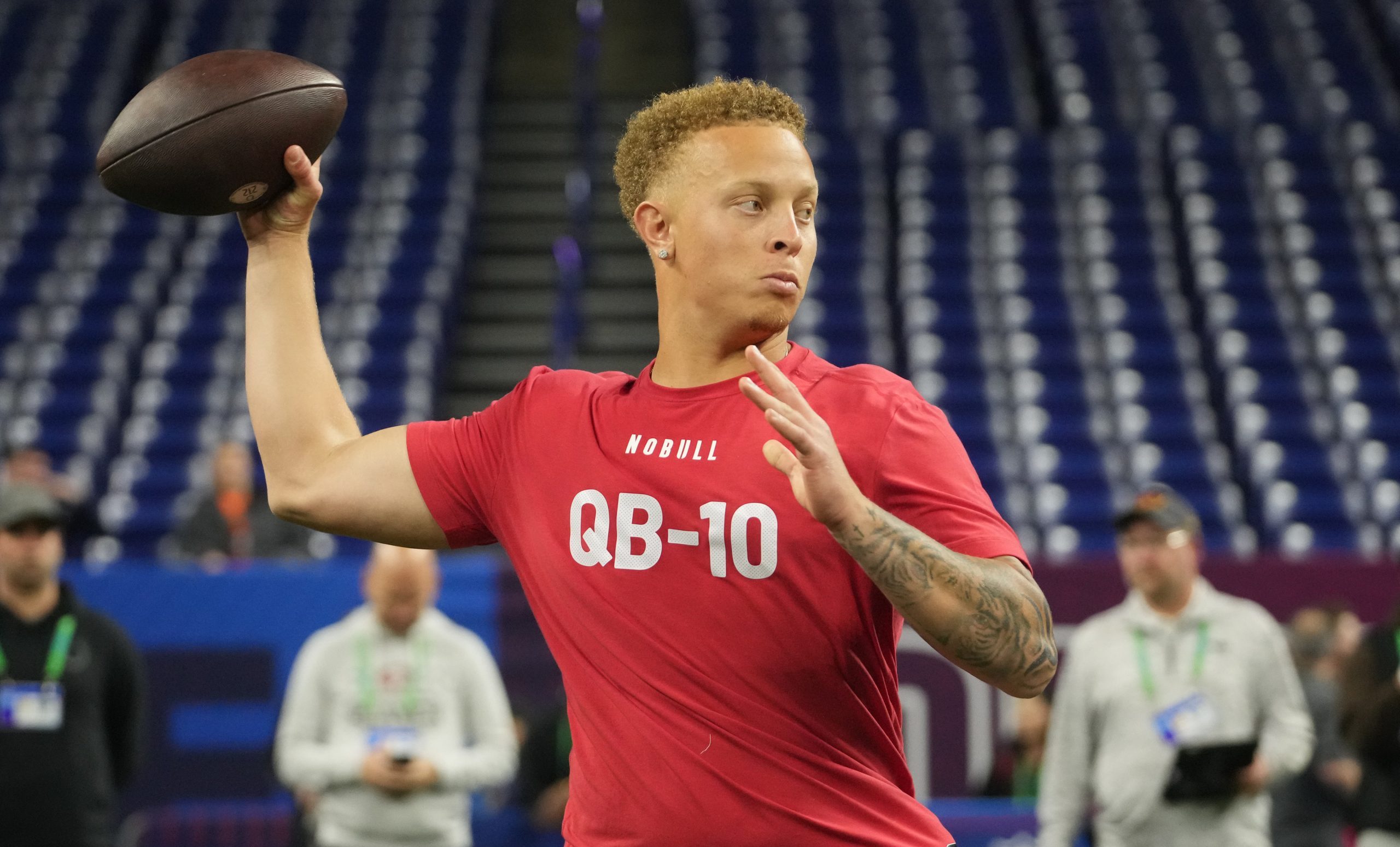Jemele Hill was once suspended by a network that now allows Aaron Rodgers to propagate conspiracy theories on their airwaves every Tuesday.
So much for sticking to sports.
On the latest episode of the Awful Announcing Podcast, Hill weighed in on whether that mandate had quietly gone away in the wake of all the controversies surrounding what Rodgers says or says he didn’t say on The Pat McAfee Show.
“The whole disingenuousness of sticking to sports is it’s never about the topic,” she told host Brandon Contes. “It’s always about how people feel about the topic, right? There is a huge sector of people that are anti-vax, as was exposed when we were really in the height and thick of the pandemic. We’re in the middle of a culture war in America, in general, grievance culture, especially; White conservative grievance culture even more specifically. And so, there are certain opinions that’s not going to create the level of outrage that it did maybe five or six years ago.
“I’m sure if I said what I said about Donald Trump in today’s ESPN culture, it would be different. Because people call Donald Trump a white supremacist like they saying his first name. It is not a new opinion. It’s not unique. And it’s commonly said.
“So, there would probably be no fanfare around it because so much has changed. But there are certain opinions — especially those opinions — put ESPN in the crosshairs of certain kind of viewers. I think those will probably always create a different level of internal reaction than other topics.”
Hill said that she didn’t think they were going to have some “stick to sports” mandate on ESPN. She thinks it’s going to be on a case-by-case basis depending on how the general public feels about the non-sports issue that’s being expressed and talked about.
Hill agreed with Contes that ESPN owes the people who regularly consume their content something different, not so much Rodgers talking about Dr. Anthony Fauci the day after the National Championship.
“That’s a decision that Pat has to make,” she said of McAfee. “‘Am I serving the audience that got me here by veering off or allowing my guest to veer off to these topics that they probably don’t necessarily want to hear.’ But then, the other argument could be made because he’s fitting firmly into the anti-mainstream media, mainstream sports media bubble.
“There’s a lot of people who are fans of his, who kind of love the fact that while on their network challenging the same network, they kind of like that. And that feeds the perception that his show is not for your traditional sports fans; it’s for people who think a little more outside the box and who like the rebellious nature of the show.
“There’s an argument to be made that maybe he is serving them. But I would like to think the majority of people who tune in to see Aaron Rodgers or Pat McAfee want to probably hear about sports.”
Speaking of Rodgers, Contes asked Hill about her thoughts on the internal conversations going on at the Worldwide Leader as the New York Jets quarterback laments conspiracy theories on the network’s platform.
“Well, I think it depends on what group of people you’re talking about,” said Hill. “I mean, certainly the chatter among the talent is a lot different because now I think there are internally a lot of people there, who are on the talent side of things, who feel like they’re setting some really bad precedent.
“…And this tends to be the case any time something that is internal spills out at ESPN, everybody sort of uses or thinks about examples in which they may have been punished or, they may have received certain directives from company leadership. And then to see them go against all of, I mean, I think they’re all wondering what this exactly is ushering in.
“And this has been a constant conversation at ESPN. It was when I was there, and I’m sure it will exist for many years to come. It’s different rules for different people. And the reality is that ESPN, because of how talent is generally treated, I don’t think they could ever create an equitable system where everybody who commits the same offense or does something that steps outside what the company line is or whatever category you want to put that in.
“I don’t think they could ever make one cookie-cutter policy that could fit everybody. It’s just kind of impossible. But, I do think there a lot of people there who feel like there’s new and bad presents being set, and there are a lot of people there who frankly agree with Pat McAfee with some of the things he’s said about ESPN management, particularly Norby Williamson.
“So, I think you have a lot of different feelings. And some of them feel like all of this is embarrassing as well, is that you platform one of the biggest stars in the NFL and he’s turned it into OANN (One American News Network). So it’s kind of like, ‘What are we doing?’
“And this whole idea of sticking to sports or only talking about things within the spectrum of how it relates to sports, now, that argument is on its head because it’s like you’ve allowed this to happen here. And then the next time somebody else kind of goes off on a tangent or decides that they want to introduce other topics that are nonsports related into the conversation, it’s gonna be a lot more pushback and lot more resistance to that.”
The Jemele Hill suspension versus the Aaron Rodgers silence paints a stark picture of ESPN’s inconsistencies. Their nebulous ‘”tick to sports” policy seems to hinge more on public sentiment than any clear-cut principles, as Hill alluded to in her discussion with AA. It leaves you wondering who truly gets to choose the boundaries of permissible discourse on the network.







